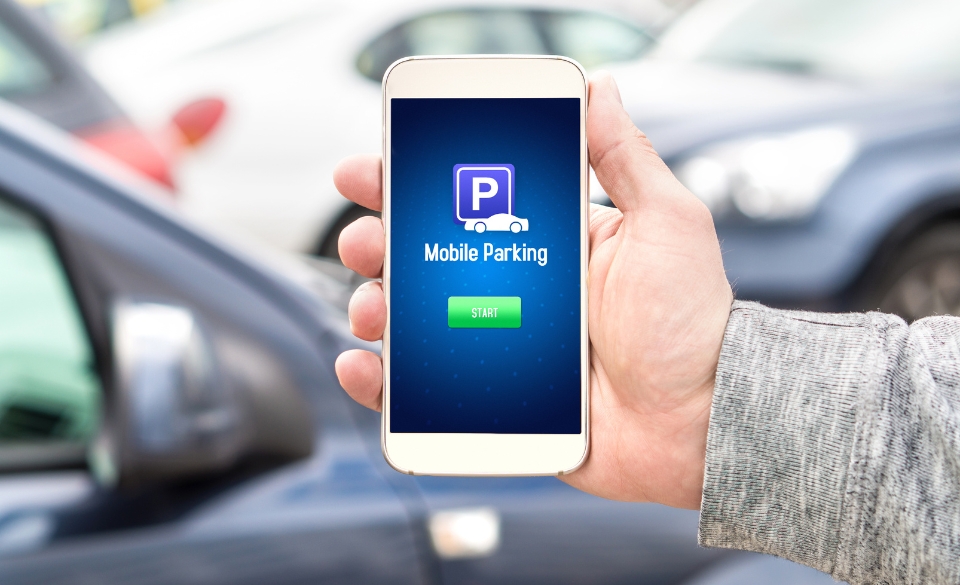New research reveals 83% of motorists want parking apps to be scrapped in favour of a return to the old pay-and-display machines.
Currently, there are around 30 different parking apps being used across the UK, but drivers say this is causing unnecessary hassle, rather than making life easier.

© Tero Vesalainen / Shutterstock
As the number of apps increases, the traditional car park payment machines have been gradually phased out. However, a survey by Autocar of almost 1,400 motorists suggests the large-scale move to payment apps has been hasty, as only 14% of UK drivers prefer them.
When were parking apps introduced?
In the past five years, there has been a marked shift to parking payment apps run by private operators as the result of an evolution in technology.
The first parking meter in Britain was introduced in 1958, followed by thousands of pay-and-display machines that dominated the market for six decades. However, as debit cards grew in popularity in the early 21st century and more people started using mobile phones, the parking sector reacted by making changes. Machine operators adapted meters to take card and contactless payments, as well as cash, which became the driving force in a move towards cashless parking in the 2020s.
Another factor in the demise of pay-and-display meters is the fact their technology operates on 3G data networks. These are currently being phased out and replaced by 4G networks. Local authorities estimate it would cost millions of pounds to update all their parking meters to be compatible with the new networks.
For example, Bromley Council in London suggests it will cost around £1 million to convert their meters to 4G, so it works out cheaper for local authorities to stick to private parking apps.
One of the first parking apps was Just Park, initially known as Park at My House when it was launched in 2006 by Barnet businessman Anthony Eskinazi. He launched his company at the age of 23, inspired after struggling to find a parking spot in the vicinity of a sports stadium. He taught himself to code to create the app and within six weeks, his scheme was so popular that he gave up his job at a firm of accountants to concentrate full-time on Just Park.
Today, he employs 80 people at the company HQ in Camden and has around 13 million customers. In an interview in 2023, Eskinazi said he didn’t think drivers’ preference for parking meters should be considered, adding people must “adapt” when technology moves on.
Currently, of the 244 councils across England, eight have removed all their pay-and-display machines and 14 have scrapped some of the machines.
Councils in Wales, Scotland and Northern Ireland have been slower to follow the tech trend, as none have removed their pay-and-display machines to date.
Some councils offer the option of paying in a local shop or over the phone, as well as via an app.
Why are parking apps unpopular?
A survey by the RAC of 1,900 drivers shows 59% of motorists feel “angry” about the move to replace the old machines with inconvenient parking apps.
The percentage of dissatisfied drivers rises to 73% for those in the 65 years and older age group. Many of them don’t have a Smartphone, or don’t feel comfortable using an app to make a financial transaction. They are also unhappy about registering personal information online due to the threat of fraud.
A survey by Consumer Intelligence also found that people aged over 65 in particular were not confident when using parking apps. Another common complaint is the number of different apps that must be used across the UK, as this causes confusion and is inconvenient.
While older people are helped to park by the use of technology such as a reverse camera or parking sensors, available through retrofit specialists, using parking apps is too much tech for many seniors. Some say the change has negatively impacted their independence in getting out and about in their car.
Charity Age UK is lobbying for all councils to include a cash payment option so that older people and those without a Smartphone aren’t excluded from parking their vehicle.
Fake parking app scams
The opportunity for scammers to create fake apps and steal motorists’ money is also a concern, according to the Autocar survey.
One driver who fell victim to a spoof parking app scam in Flintshire, Wales, reportedly had £230 stolen from her bank account after believing she had paid a £1 car parking fee. She later discovered fraudsters calling themselves The Happy Hormone had taken money from her bank in three separate transactions.
Responding to concerns, the Local Government Association of England and Wales says removing 3G networks across the country has posed a “considerable challenge” to the future of traditional cash parking meters. A spokesperson said this had led to councils having to digitise “parts of their parking services”.
Addressing the growing discontent in October 2023, Transport Secretary Mark Harper and Prime Minister Rishi Sunak announced they were planning a “national parking platform”. This would enable drivers to pay for parking via one system from anywhere in the UK. At the time, the PM said his goal was to have it operational by autumn 2024.

